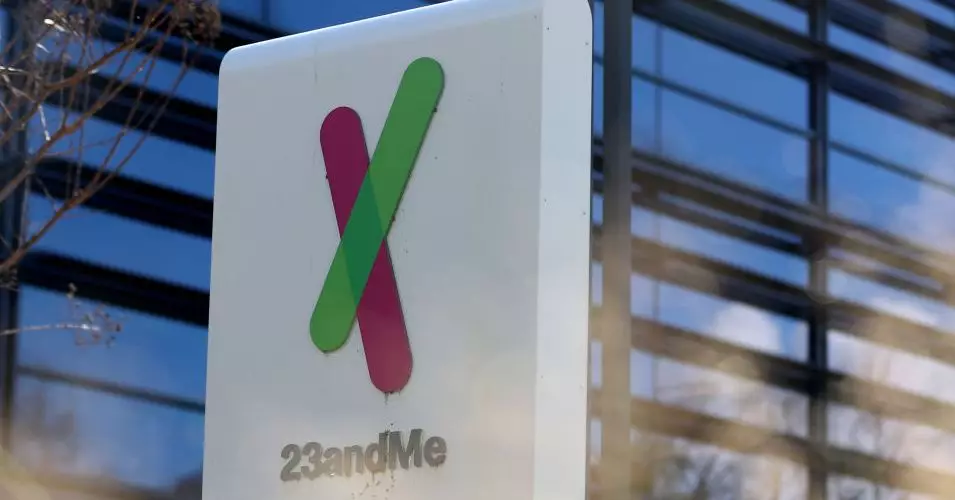The landscape of genetic testing is experiencing seismic shifts, and 23andMe—a company once held in high esteem with a staggering valuation of $6 billion—is now entrenched in bankruptcy proceedings. This turn of events is profoundly telling: the organization, launched in 2006 by CEO Anne Wojcicki, has seen rising tides of challenges that culminated in her departure amid failed efforts to transition the company to private ownership. The implications of this bankruptcy extend far beyond the company’s financial health; they bring into sharp focus societal concerns surrounding the protection and ownership of genetic data.
Genetic testing was initially branded as a technological marvel, promising to unlock endless possibilities in personal medicine and ancestry. Yet, as 23andMe faces its existential crisis, a pivotal question looms: what happens to the deeply personal genetic data entrusted to them by millions? The stakes here are not merely financial; they revolve around ethical considerations and trust.
The Rights of Genetic Data Owners
Privacy advocates have long underscored the inherent risks tied to personal data sharing in the digital age, especially in the realm of genetic testing where the information is not just data, but a part of one’s identity. California Attorney General Rob Bonta recently highlighted this concern, reminding consumers of their legal rights regarding data deletion. For Californians, the law provides some recourse against possible data misuse, but it starkly underscores a national void in health privacy legislation that leaves many consumers in other states vulnerable.
The distinction between privacy rights in California, Washington, and other states is not merely technical; it reflects a broader narrative about consumer empowerment and regulatory responsibility. For individuals outside of these jurisdictions, the situation feels particularly precarious. As 23andMe’s crisis unfolds, there is an urgent call for all customers—regardless of location—to take stock of their data and request its deletion if they hold any precedence over distrust in its future stewardship.
Revamping the Trust in Genetic Data
The potential acquisition of 23andMe opens a labyrinth of uncertainties regarding the future handling of existing customer data. John Verdi, a policy expert, suggests that any new owner might alter privacy policies, indicating that the treatment of future data collection could shift drastically. While existing data is bound by prior agreements, the transparency and reliability of those agreements are increasingly questionable.
Renowned security researcher Kenn White has articulated skepticism regarding the efficacy of privacy policies, particularly as they pertain to mergers and acquisitions within the tumultuous venture capital space. For consumers who invest their trust and personal information into these services, the realization can be jarring: they may find themselves with little to no control over how their genetic data is managed or shared henceforth.
This commentary reveals a substantial gap in consumer empowerment. In practice, individuals are expected to navigate complex privacy landscapes on their own, exposing them to the risk of exposure and misuse. With technology evolving at breakneck speeds, the protective measures surrounding our genetic information seem increasingly outdated and feeble.
Cleansing Your Genetic Footprint
Faced with uncertainty, the immediate takeaway for 23andMe users is to prioritize the management of their genetic data. In a proactive step towards safeguarding one’s information, the deletion process is straightforward yet critical. By logging into their accounts, consumers can navigate to settings, download their genetic data, and subsequently seek its deletion. This simple act can empower users in reclaiming control over their personal data, though it is a shame that such measures are necessary at all.
Moreover, users should consider directing 23andMe to destroy their biological samples—this additional step places a further barrier against potential misuse of their genetic information. The procedures may be clear, yet the emotional weight of such actions can be daunting when considering the implications.
Societal Implications and Future Directions
As 23andMe’s predicament exemplifies the growing concerns surrounding genetic data privacy, it also highlights the urgency for stronger national regulations. Current legislation remains fragmented and inadequate, leaving consumers in constant flux regarding their rights and the safety of their personal genetic information. A robust national health privacy framework is not just ideal; it is essential for an informed and empowered public. In navigating these complicated waters, consumers can no longer take privacy for granted. They must assert their rights and actively engage in the dialogue surrounding the commodification of their own genetic data. The tech industry must also face scrutiny, ensuring that policies are not merely symbolic but substantive.

